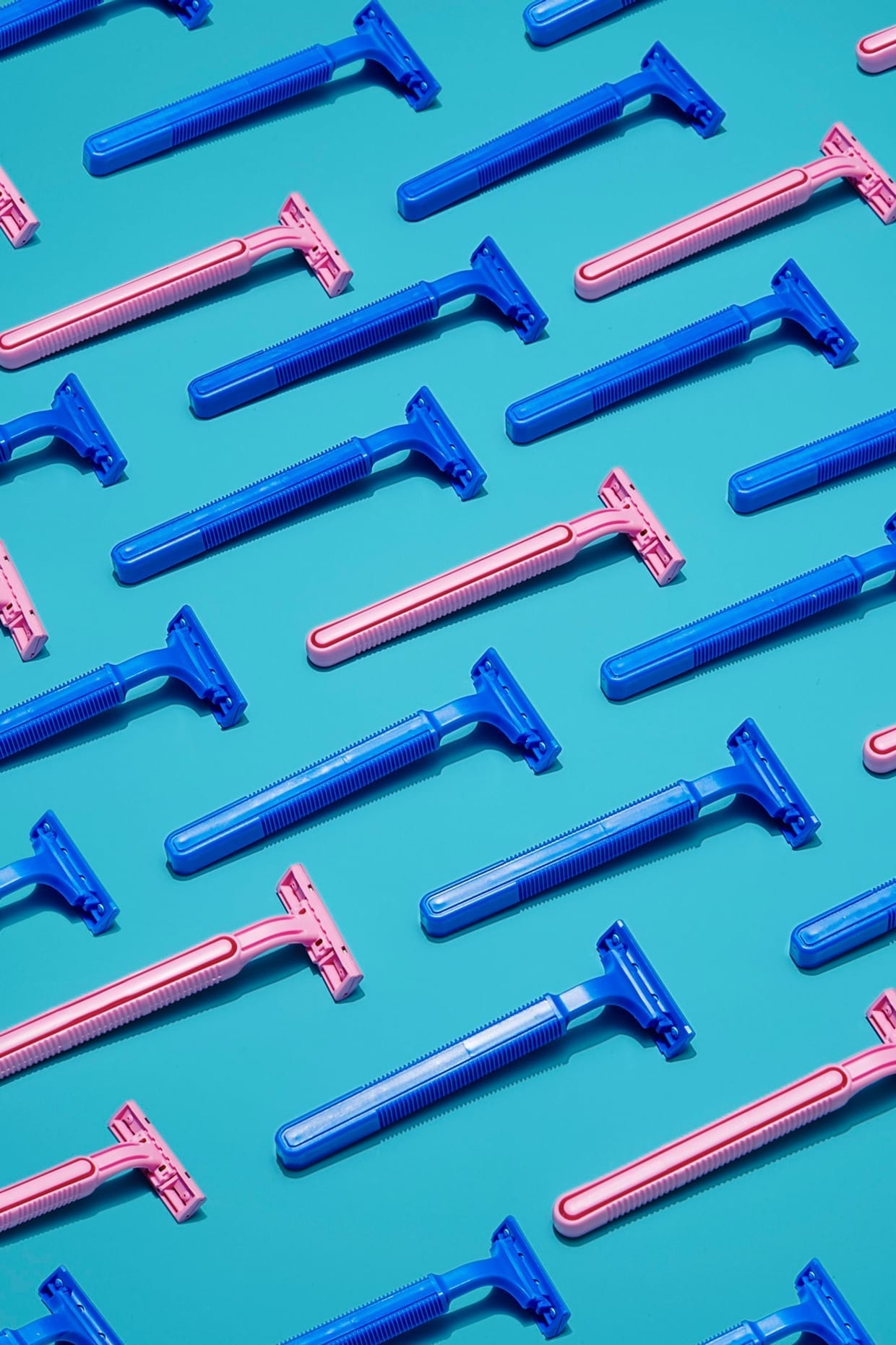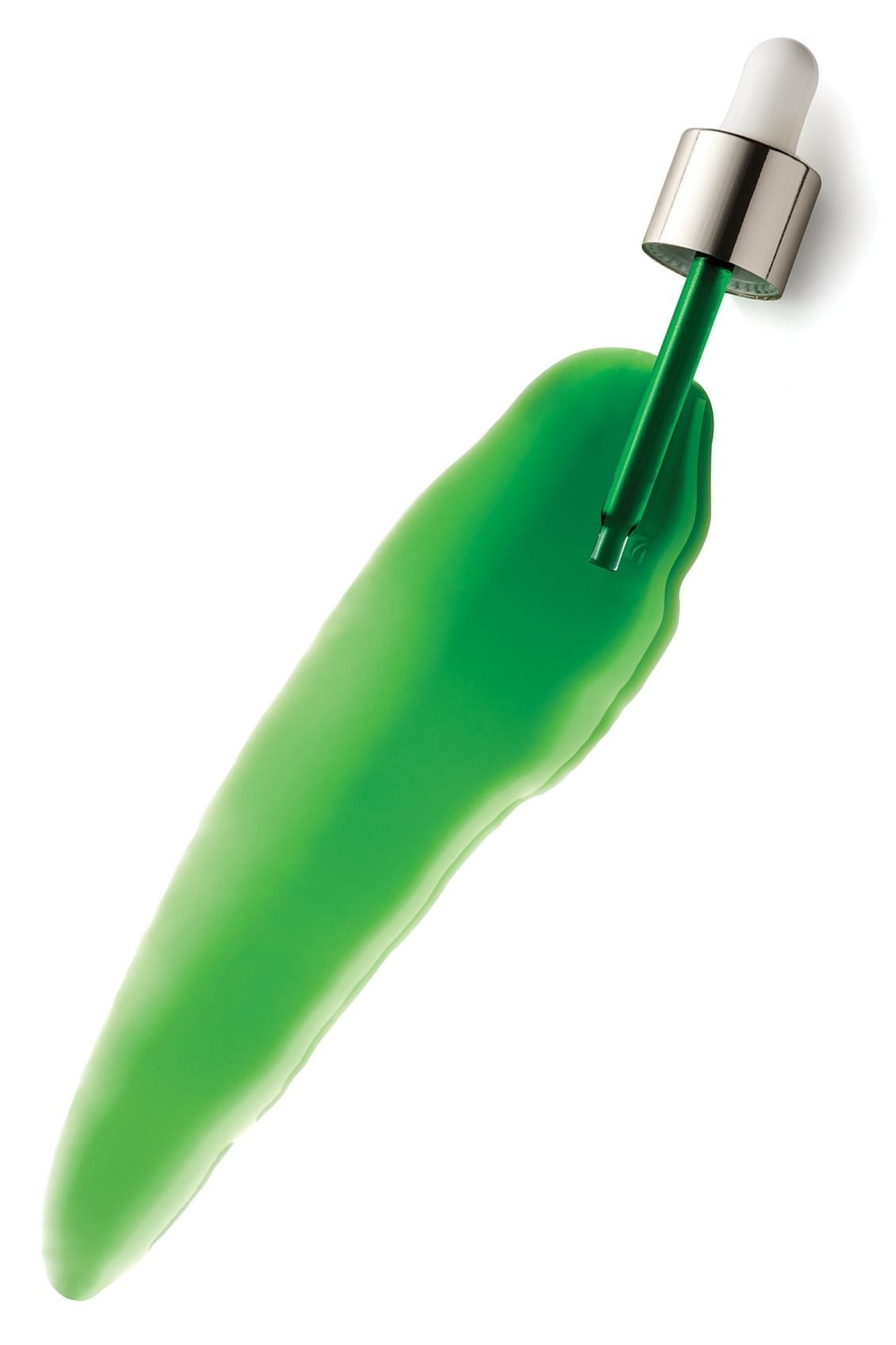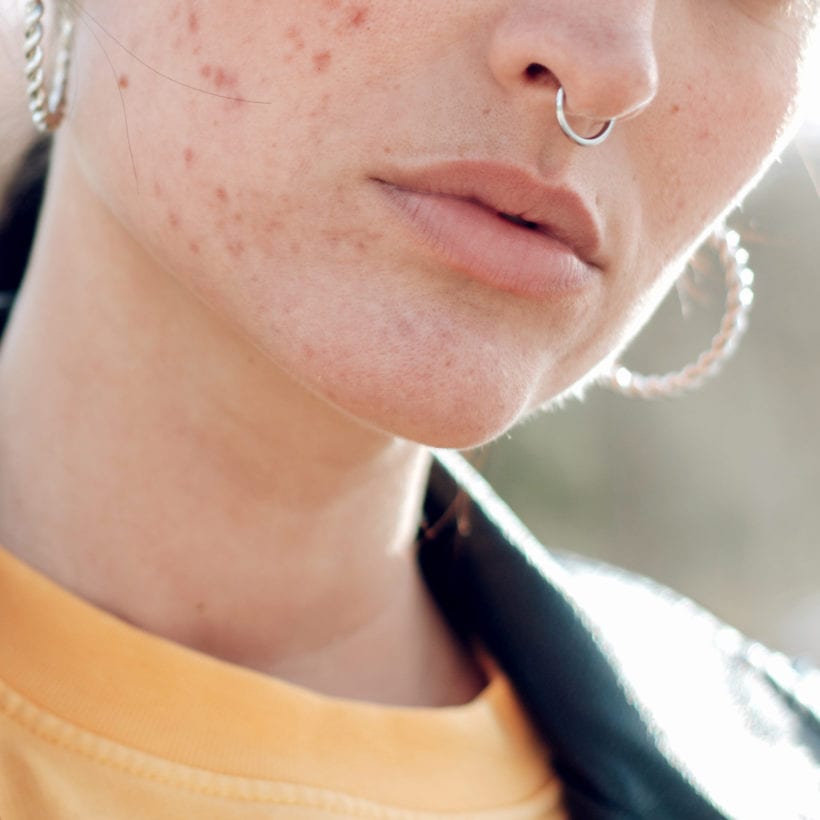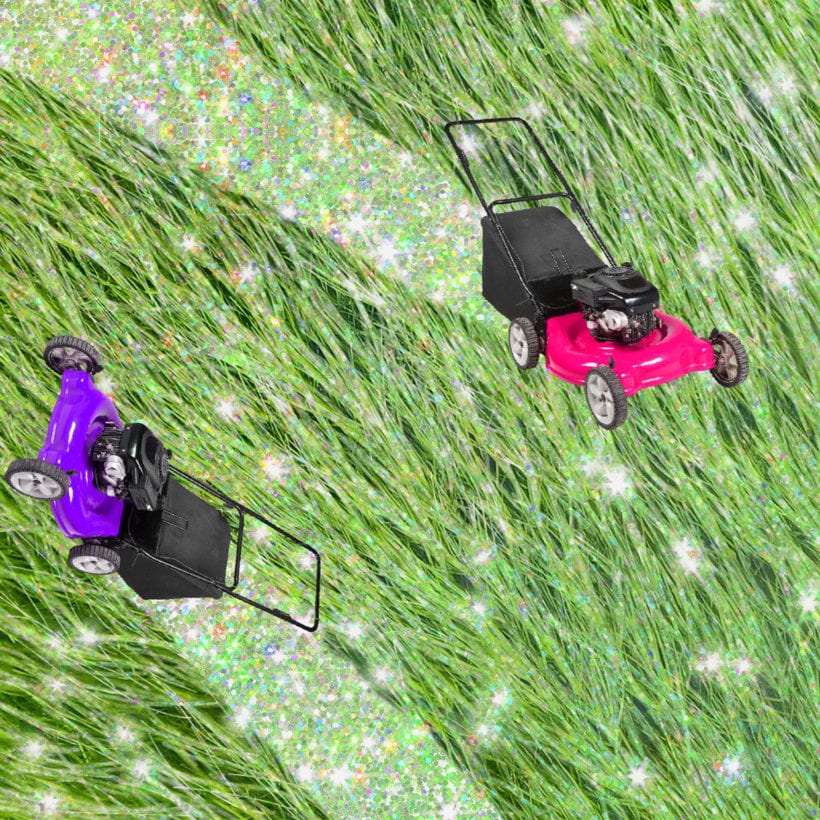Of all the places we have to deal with acne — our faces, chests, backs, butts — one might hope some things remained sacred. That our lady parts, at least, might remain immune to acne. But unfortunately, that is not the case. Bumps on and around your bikini line — aka “vagina acne” — are a thing. Yes, really. Here is what causes them and what to do to make them go away.
What is ‘vagina acne’?
Technically, pimple-like bumps that show up around your underwear are better described as vulvar acne — anatomically speaking, “vagina” refers to the inner canal, not the outer bits. And, these bumps are not actually true acne — at least they are not like the kind of pimples you might get on your face. “True acne is caused by inflammation in the sebaceous glands,” says Hedieh Asadi, M.D., co-founder of DeoDoc. Bumps on your bikini line, on the other hand, are often caused by a different type of inflammation.
“The most common cause of acne-like bumps in the bikini area is a condition called folliculitis, which is an inflammation, and sometimes infection, around the hair follicles,” says Hadley King, M.D., a consulting dermatologist for AcneFree. “Folliculitis can present as red bumps, pus-filled bumps, or sometimes larger boil-like nodules.” Razor burn — tiny little red, almost rash-like bumps — can also sometimes look like acne.
There is another type of vulvar acne that is closer to the pimples that pop up elsewhere on your body: Hidradenitis suppurativa, also known as “acne inversa.” “This is a chronic skin condition characterized by inflamed and swollen bumps and nodules that are typically painful and can drain fluid or pus,” King says. In addition to your groin, these bumps also commonly show up under your arms and breasts. Dermatologists are not 100 percent sure what causes it, but a combo of dysfunctional apocrine sweat glands and genetics seem to play a role, King says.
How do you know if a bump is more serious?
Anytime you see a bump down there, a mini moment of panic is understandable — sexually transmitted infections (STIs) can also manifest as red bumps on your genitals. If you have any pain, burning, sensitivity or fluid coming out of the spot in question, go see your gynecologist.
It is also not uncommon for ingrown hairs to masquerade as acne, King says. “They can appear like painful pus-filled bumps or cysts. From the surface, it can be difficult to distinguish these bumps but acne lesions do not contain trapped hair as ingrown hairs do,” she says.
What causes bikini line acne?

Many things can cause bumps on and around your vulva. For some women, hormones can cause flare-ups (much like acne on your face), King says. For others, “waxing and shaving can also trigger pimple-like bumps because the sensitive skin in this area is easily irritated and inflamed after hair removal,” she explains.
There are four main culprits behind folliculitis bumps, says Asadi: “The usage of a dull razor (one that has been used too many times), the use of wrong products when shaving, fatty shaving creams or lotions that clog the pores, and soaps that dry out and irritate the skin.”
How can you get rid of it?
When you do get bumps below the belt, first make sure it is a pimple (not an STI or an ingrown hair) before doing anything. If you are unsure, have your dermatologist or gynecologist take a look. Then start by keeping the area clean. The best weapon is prevention. “For prevention and treatment of body acne and folliculitis, you need to keep the skin clean, exfoliated (but not so much that you cause irritation) and hydrated,” says Sunday Riley, CEO and founder of Sunday Riley Modern Skincare. “When it comes to keeping the skin clean, try not to use scented body washes, because that can be a source of irritation — and in general, we are trying to reduce the number of irritants.”
“If ingrown hairs are the problem, the most definitive solution is getting rid of the hair with either electrolysis or laser hair removal,” says King. If you are going to shave, make sure to use a non-dull razor and shave with the grain (aka in the direction that the hair grows), Asadi adds.
“To help prevent ingrown hairs, use a soft, large-bristled toothbrush and gently scrub every other day,” says Riley.
But sometimes you need to bring in the big guns. To target a bump, “[a]n over-the-counter benzoyl peroxide acne wash can be helpful because benzoyl peroxide is a highly effective antibacterial that can be used daily on the bikini area,” King says. “It can both treat and prevent breakouts.” Again, just be careful to only treat the vulva — not the vagina itself as this can be irritating.
If you find benzoyl peroxide body washes to be too drying (the skin down there is a lot more sensitive than the skin on your back, after all) switch to a product with a gentler acne-fighting ingredient like sulfur, glycolic acid or salicylic acid. Riley suggests a salicylic acid oil. “An oil-based delivery system is ideal because salicylic [acid] can be irritating and dehydrating, which can actually exacerbate the situation. I would recommend a few drops of U.F.O. Acne Treatment Oil, which has 1.5 percent salicylic acid in a base of soothing, clarifying plant oils like black cumin seed oil and milk thistle seed oil,” she says.

“If the bumps you experience are hormonal, then oral birth control or other hormonal medications such as spironolactone, can be helpful,” says King. This route requires a prescription, so if you think you have hormonal acne, talk to your dermatologist.
But what about those really tender bumps (like cystic acne) that just will not go away? Draw yourself a warm bath with Epsom salts to help bring down the inflammation, King recommends. “If the issue is chronic and not improving, see your dermatologist,” she says. “They may prescribe a topical or even an oral antibiotic to address the problem.”
Whatever you do, the experts generally recommend avoiding “vajacials”— aka vagina facials. “These often consist of an exfoliating scrub and extractions, which involves using a lancet to unroot any ingrown hairs,” King says. In these cases, hygiene becomes a concern — you should never pick at an ingrown hair or try to “pop” vulvar acne as it could become infected. You should also be wary of harsh exfoliants. When used on the vulva they “can cause irritation and exacerbate the problem,” King says.
The bottom line: You can definitely get acne-like bumps on your vagina. Like any acne, avoid picking or popping, and always keep it clean.
We only recommend products we have independently researched, tested and loved. If you purchase a product found through our links, Sunday Edit may earn an affiliate commission.








